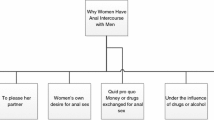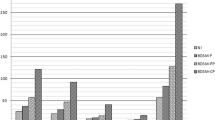Abstract
The infertility rate among African Americans is higher than that of other ethnicities; yet, it is rarely discussed or acknowledged. There is an abundance of research that contributes to the body of knowledge of infertility among white people, but there is very little that examines the experience for African Americans. This study aimed to explore the experience of infertility among African American couples. Utilizing a phenomenological approach, six married couples were interviewed about their experience of infertility. This approach was used in order to provide a first-person account of the lived experience of infertility for the couples. The findings demonstrate how infertility can be a traumatizing event that is experienced differently by men and women. The distress of the experience challenges one’s sense of self. The findings also suggest how religion and spirituality played a central role in the lives of the couples, helping them to cope with infertility. The personal stories provided by the couples illustrate the profound impact the experience of infertility has had on their lives.
Similar content being viewed by others
Notes
This study contains limitations. First, the sample size was small, consisting of six couples. As a result, it is possibly only generalizable to those with similar characteristics of the participants and not reflective of a broader population. Second, the researcher used open-ended questions. Responding to open-ended questions may be difficult for respondents who are unfamiliar or uncomfortable with expressing their views and opinions. Also, with the use of open-ended questions, there is limited control over the length and response. Consequently, this leads to the final limitation; the interviews with each of the husbands were an average of 25 min compared to those of the wives, which lasted about 60 min. The researcher is female. While not necessarily a limitation, it could have influenced the willingness of the male participants to disclose information and respond adequately to questions. A study in which a male conducted interviews on this topic might yield different results or additional data.
References
Bell, A. V. (2009). “It’s way out of my league”: Low-income women’s experiences of medicalized infertility. Gender & Society, 23(5), 688–709.
Boyd-Franklin, N. (2003). Black families in therapy: Understanding the African American experience. New York: Guilford Press.
Burnett, J. A. (2009). Cultural considerations in counseling couples who experience infertility. Journal of Multicultural Counseling and Development, 37, 166–177.
Caesar, L. G. & Williams, D. R. (2002). Socioculture and the delivery of health care: Who gets what and why. The ASHA Leader, 7, 6–8.
Ceballo, R. (1999). “The only black woman walking the face of the earth who cannot have a baby”: Two women’s stories. In M. Romero & A. J. Stewart (Eds.), Women’s untold stories: Breaking silence, talking back, voicing complexity. New York: Routledge.
Chandra, A., Copen, C. E., & Stephen E. H. (2013). Infertility and impaired fecundity in the United States, 1982-2010: Data from the National Survey of Family Growth. National Health Statistics Reports, No. 67. Hyattsville, MD: National Center for Health Statistics.
Chatters, L. M., Taylor, R. J., Jackson, J. S., & Lincoln, K. D. (2008). Religious coping among African Americans, Caribbean blacks, and non-Hispanic whites. Journal of Community Psychology, 36(3), 371–386.
Creswell, J. W. (2007). Qualitative inquiry & research design. Thousand Oaks: Sage Publications.
Inhorn, M. C., Ceballo, R., & Nachtigall, R. (2008). Marginalized, invisible, and unwanted: American minority struggles with infertility and assisted conception. Marginalized Reproduction: Ethnicity, Infertility and Reproductive Technologies, 11, 181–97.
Jaffe, J., Diamond, M. O., & Diamond, D. J. (2005). Unsung lullabie: Understanding and coping with infertility. New York: St. Martin’s Griffin.
Jain, T. (2006). Socioeconomic and racial disparities among infertility patients seeking care. Fertility and Sterility, 85(4), 876–881.
Moustakas, C. (1994). Phenomenological research methods. Thousand Oaks: Sage Publications.
Phipps, S. A. (1998). African-American couples’ lived experience of infertility. Resiliency in Families Series, 3, 245–258.
Rubin, A., & Babbie, E. R. (2008). Research methods for Social Work (6th ed.). Belmont: Thomson Brooks/Cole.
Sherrod, R. A., & DeCoster, J. (2011). Male infertility: An exploratory comparison of African American and white men. Journal of Cultural Diversity, 18(1), 29–35.
Vorvick, L.J. (2012). Definition of infertility. Retrieved February 27, 2012, from www.nlm.nih.gov/Medlineplus/ency/article/001191.htm.
Ward, E. C., Clark, L., & Heidrich, S. (2009). African American women’s beliefs, coping Behaviors, and barriers to seeking mental health services. Qualitative Health Research, 19(11), 1589–1601.
Author information
Authors and Affiliations
Corresponding author
Additional information
Publisher’s Note
Springer Nature remains neutral with regard to jurisdictional claims in published maps and institutional affiliations.
Rights and permissions
About this article
Cite this article
Taylor, L.C. The Experience of Infertility Among African American Couples. J Afr Am St 22, 357–372 (2018). https://doi.org/10.1007/s12111-018-9416-6
Published:
Issue Date:
DOI: https://doi.org/10.1007/s12111-018-9416-6




